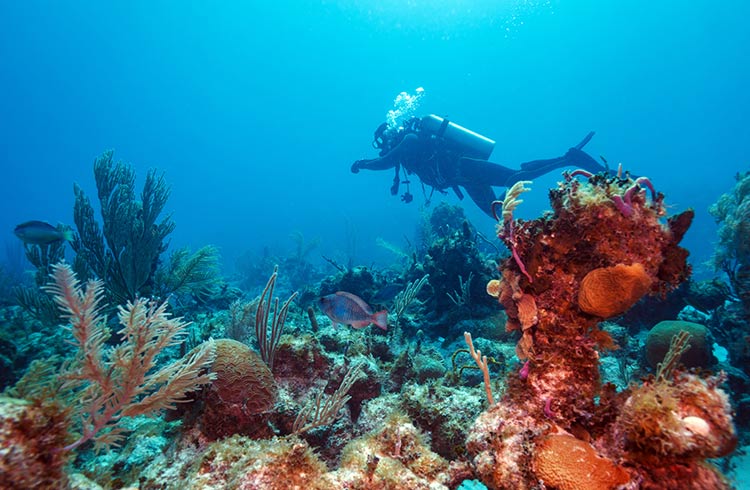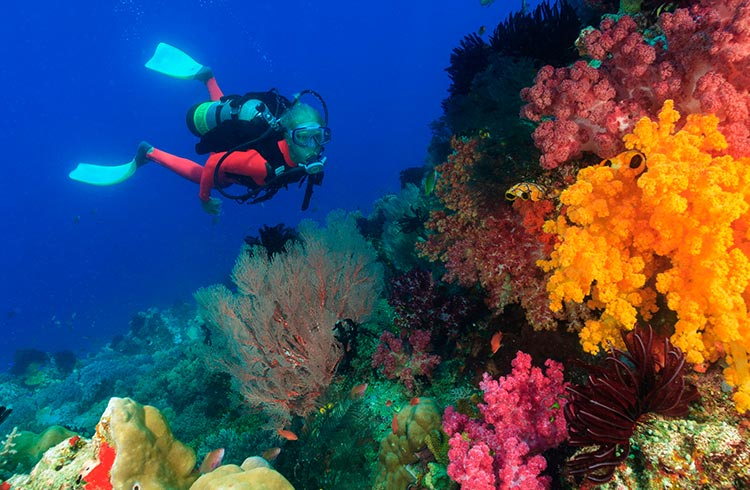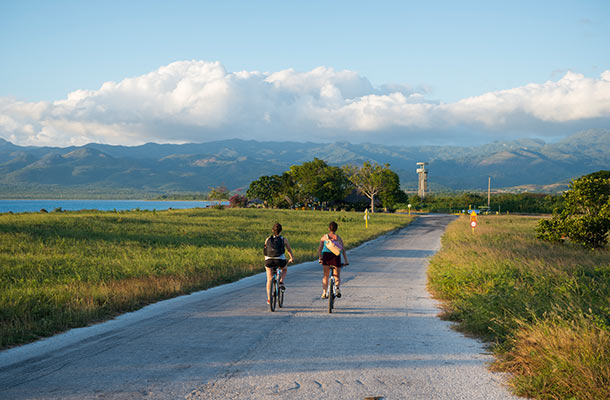Scuba in Cuba Safely: 5 Essential Tips for Safe Divers
Cuba’s vast reef system is among the most spectacular and best-protected in all of the Caribbean. But before you head off, our local insider Terry shares a few tips you should know before taking the plunge.
 Photo © iStock/Rostislavv
Photo © iStock/Rostislavv
Tour operators
The busiest and most experienced scuba diving tour operators are found in the most developed beach resort areas such as Cayo Coco, Varadero, and Guardalavaca.
But you’ll also find experienced shops operating in the popular dive destinations of Maria la Gorda, Isla de la Juventud and Punta Frances.
Jardines de la Reina, an offshore location that’s home to the most dazzling reefs in the country, is accessible by liveaboard dive boat only.
Hotel chains such as Melia, Iberostar, Brisas and Royalton all have reliable dive shops in-house.
I recommend Avalon Fleet 1 – a ship with eight staterooms that can host up to 18 divers - if you choose liveaboard-based diving.
Scuba gear
Rental scuba gear at the big hotels and resorts in Cuba can be of varying quality.
As always, if you have your own gear, you’re best off bringing it with you on your trip.
Make sure hoses and attachments have all been recently serviced at home before your arrival, as replacement parts can be hard to come by in Cuba.
Even if you plan to rent everything on island, it’s best to at least bring your own mask from home since fit is so personal.
Safety in the water
One of the best safety measures you can have is to ensure you’ve got the right insurance cover so you’re taken care of in case of an emergency. Click here to find out more.
As with anywhere in the world you dive, it’s important to respect the limits instilled by your instructor in Cuba as well as the limits dictated by your dive computer.
Never dive beyond your limits, dive with a buddy at all times and be sure to observe the 24-hour no-fly rule after your last dive.
Expertise required
Basic open-water diver certification is all you need for much of the diving in Cuba.
If you’re a beginner diver with just a few dives under your belt, it’s best to stick with shallow reef dives until you feel more comfortable.
For divers with advanced certifications, there’s much to explore here, too, in the way of caves, caverns, drift dives and tunnels. Dive within your limits at all times.
Weather conditions
You can dive year-round in Cuba. But the best conditions are during the dry season, between December and April.
The water is cooler at this time (around 22ºC) and you’ll probably want a 5mm wetsuit if you’re doing multiple dives, but the seas are also calmest and the water at its most clear, with up to 40m of visibility.
During the rainy season, between June and October, increased wind creates choppy surface conditions and there’s also a risk of hurricanes.
Related articles
Simple and flexible travel insurance
You can buy at home or while traveling, and claim online from anywhere in the world. With 150+ adventure activities covered and 24/7 emergency assistance.
Get a quote

No Comments